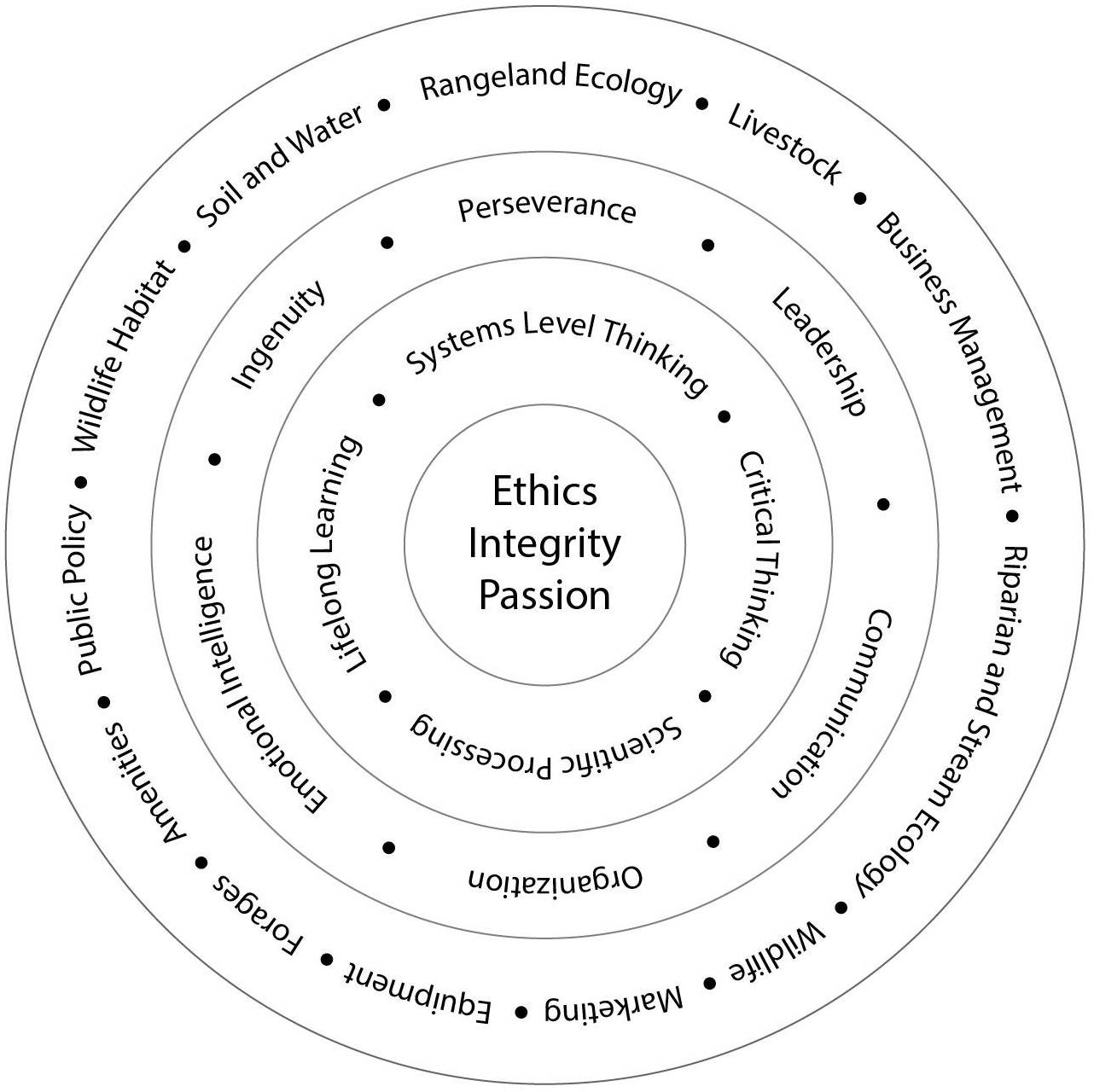Our History
Mission
To sustain and preserve the agricultural heritage of the Northern Great Plains and Intermountain West by graduating students who have the breadth of knowledge and diversity of skills needed to employ prudent ranching practices that create value and improve the natural resources vital to our land.
History
The Dan Scott Ranch Management Program is named for the late Dan Scott, eldest son of Padlock Ranch founder Homer Scott. Dan Scott served as CEO and manager of the ranch for 50 years. Founded in 1943 by Homer and Mildred Scott, the Padlock Ranch is a diversified cow-calf farm and feedlot operation in Montana and Wyoming. Today, it is run by Homer and Mildred Scott's descendants.
Dan Scott and Padlock Ranch have a legacy of measured progress to people, natural resources, customers, finances and lifestyle. They represent the Montana ranching tradition.
The preeminent ranch management program in the Northern Great Plains and Intermountain West provides support for degree programs at Montana State University that aim to sustain and preserve the region's agricultural heritage by graduating students who have the breadth of knowledge and diversity of skills needed to employ prudent ranching practices that create value and improve the natural resources vital to our land.
We provide:
- Academic courses in Animal Science, Rangeland Ecology and Business
- Leadership and communications training
- Mentor and peer network for success after graduation
- Internships at working ranches.
For more information about our courses, visit the Ranching Systems Degree Program.
Objective
Develop a pipeline of future ranch managers with the skills and experiences to manage complex ranches through a unique program focused on building a knowledge base and skill set across academic disciplines that includes business, ecology, agriculture, communication and public policy. Student’s education will be enhanced through real-world experiences and exposure to leading organizations in fish and wildlife ecology and land management.
“The key is to have a very broad curriculum that ties animal production, natural resources, wildlife, accounting, and finance together with external learning opportunities through internships and projects. The curriculum must focus on tying all these aspects together for the good of the whole ranch. Training students to manage the complexity of the interconnectedness of all the facets is the niche MSU could fill.”
- Clay MathisDirector and Kleberg Endowed Chair King Ranch Management InstituteTexas A&M University - Kingsville
Need
Keeping ranches viable leaves native rangelands undamaged, creates habitat for a broad diversity of game animals and other species, protects the soil, and sustains rural families and communities. To adequately manage these resources in an environmentally, economically and socially sustainable manner takes an experienced, well-trained and educated professional. The expertise and traditions of western ranchers are as important today as they were 100 years ago.
However, the skill sets, knowledge base and critical-thinking abilities needed for present and future ranch managers have grown faster than the educational programs that service this vital element of the United States’ food, natural resource and recreational hospitality industries.In 2015, the USDA reported a critical shortage of well-trained individuals needed to meet the demands for current and future professionals in agriculture and natural resource management.
Additionally, MSU’s Jake Jabs College of Business & Entrepreneurship conducted a survey in 2016 of individuals involved in the land and livestock management business, members of the Montana Land Reliance and the Montana Stockgrowers Association. The results indicated there is a high demand for a ranch management degree program in Montana and the Northern Rockies/Great Plains.

